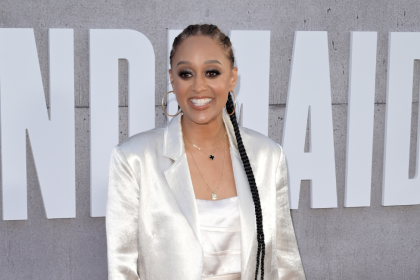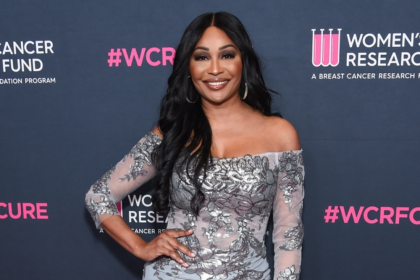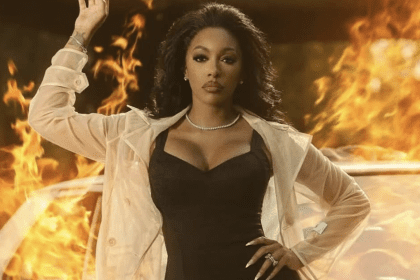In an era where celebrity missteps can spiral into career-defining moments within hours, actor Woody McClain demonstrated remarkable foresight by issuing a public apology before controversy could even begin. The Power Book II: Ghost star took to social media on May 31 to address what he characterized as inappropriate behavior during a recent podcast recording with former NFL quarterback Cam Newton.
The actor’s decision to apologize publicly—before Newton’s Funky Friday podcast episode featuring their conversation has even aired—represents a notable shift in how entertainment figures navigate potential public relations disasters. His brief but direct message on Threads expressed regret and took responsibility for his actions on the podcast.
The apology has generated significant buzz across social media platforms, with fans and industry observers dissecting every aspect of the statement while speculating about what transpired during the unaired recording session.
The mystery behind closed doors
Without the podcast episode available for public consumption, the entertainment community finds itself in the unusual position of reacting to an apology without knowing the underlying incident. This information vacuum has created a feeding frenzy of speculation, with theories ranging from heated disagreements to inappropriate comments or unprofessional behavior.
Newton’s Funky Friday podcast, known for its candid conversations with athletes, entertainers, and cultural figures, typically features unfiltered discussions that can venture into controversial territory. The show’s format encourages guests to speak freely, which may have contributed to whatever situation prompted McClain’s public mea culpa.
Industry insiders suggest that something substantial must have occurred for McClain to feel compelled to address it publicly before the episode’s release. The actor’s proactive approach indicates either genuine remorse or strategic damage control—possibly both.
McClain’s rising profile and public image
The timing of this incident carries particular significance for McClain, whose career trajectory has been steadily ascending. His portrayal of Bobby Brown Jr. in the BET miniseries The Bobby Brown Story and subsequent role in Power Book: Ghost have established him as a recognizable face in urban entertainment circles.
For an actor still building his brand and expanding his fan base, maintaining a positive public image remains crucial. McClain’s immediate acknowledgment of wrongdoing, rather than waiting for potential backlash, suggests an understanding of how quickly reputations can be damaged in today’s digital landscape.
The actor’s approach contrasts sharply with the typical celebrity playbook of deflection, denial, or delayed responses that often characterize public relations crises in entertainment.
Fan reactions split between support and curiosity
Social media responses to McClain’s apology reveal a divided audience wrestling with incomplete information. Many fans have praised the actor’s accountability, viewing his willingness to apologize as evidence of personal growth and professional maturity.
Users across various platforms have expressed respect for McClain’s decision to own up to whatever happened during the recording. Others have expressed frustration with the vague nature of the apology, demanding more specificity about the incident.
The curiosity factor has proven equally powerful, with numerous fans openly stating their intention to listen to the podcast episode specifically because of the controversy. This phenomenon highlights how pre-release drama can inadvertently boost audience engagement—a reality not lost on podcast producers and entertainment marketers.
The evolving landscape of celebrity accountability
McClain‘s preemptive apology reflects broader changes in how public figures manage their reputations. Traditional crisis management strategies often involved minimizing incidents or deflecting responsibility until public pressure became overwhelming. Contemporary approaches increasingly emphasize immediate acknowledgment and genuine accountability.
This shift aligns with changing audience expectations, particularly among younger demographics who value authenticity and transparency from their favorite entertainers. Social media has accelerated these expectations, creating environments where delayed responses can appear calculated or insincere.
Newton’s professional response
Notably absent from the public discourse has been any response from Newton or his podcast team. This silence may indicate their preference to let the episode speak for itself once released, or it could suggest ongoing discussions about how to handle the situation.
Newton, who has navigated his own share of public controversies throughout his NFL career and media ventures, likely understands the delicate balance between addressing incidents and allowing them to overshadow substantive content.
Industry implications and future considerations
The McClain incident underscores the evolving relationship between traditional entertainment media and podcast platforms. As podcasts continue gaining influence in shaping public opinion and celebrity narratives, the stakes for guest appearances have increased correspondingly.
For entertainers like McClain, podcast appearances offer valuable opportunities for authentic connection with audiences, but they also present risks inherent in unscripted, long-form conversations. The informal nature of many podcast settings can lead participants to lower their guards in ways that might prove problematic later.
Moving forward, this incident may prompt other celebrities and their representatives to consider more carefully the potential consequences of candid podcast appearances, particularly on shows known for pushing boundaries or encouraging controversial discussions.
The entertainment industry will be watching closely to see how this situation resolves and what precedent it sets for future celebrity podcast appearances and crisis management strategies.
















